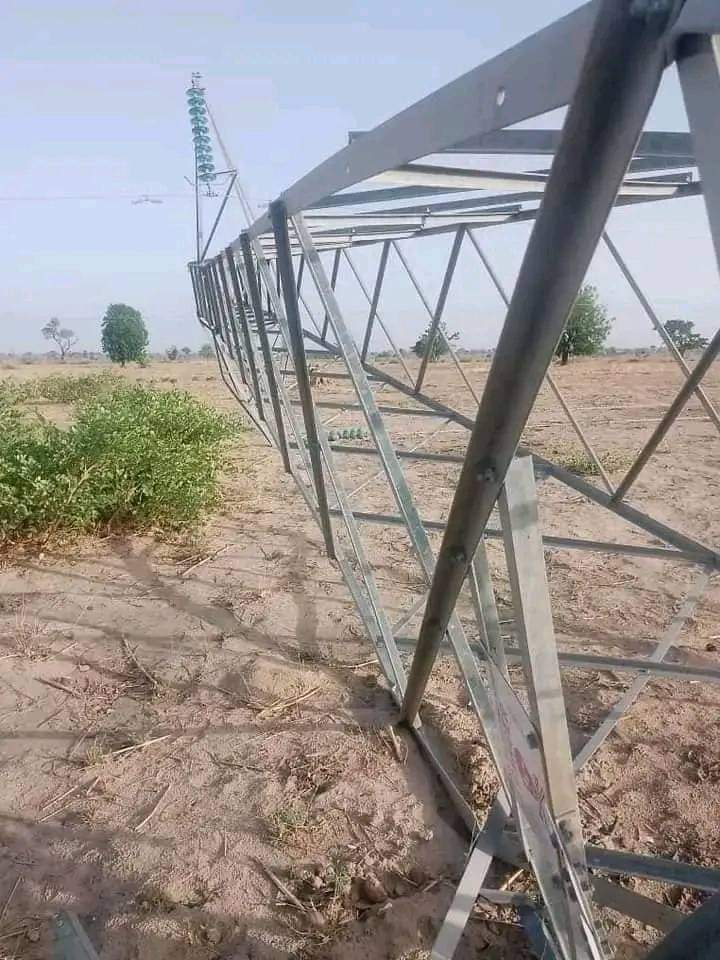The Minister of Power, Adebayo Adelabu, has called for the establishment of regional power grids to address the ongoing issue of grid collapses in Nigeria.
Speaking at the launch of Hexing Livoltek, an electricity meter manufacturing company in Lagos, he noted that the current dependence on a single national grid leaves all states vulnerable to disruptions.
Adelabu stated that the Electricity Act, signed by President Bola Tinubu in 2023, facilitates the decentralization of the power sector, allowing local governments to engage in electricity generation, transmission, and distribution.
This move aims to create stability and limit the impact of grid issues to individual states.
“This Electricity Act has decentralised power. It has enabled all the subnational governments, the state government and the local government, to be able to participate in the generation, transmission, and distribution of electricity.
“We all rely on a single national grid today; if there is a disturbance of the national grid, it affects all 36 states. It shouldn’t be like that. This will enable us to start moving gradually towards having regional groups and possibly having state grids.
“And each of these grids will be removed and shielded from each other. So, if there’s a problem with a particular grid, only the state where it belongs will be affected, not the entire nation. So, this is one of the impacts this Electricity Act will have,” he stressed.
He underscored that without substantial investment in infrastructure, the country would continue to experience grid failures, as many components are outdated. While there have been fewer collapses in recent months, he stressed the need for urgent upgrades to ensure a reliable power supply.
“We keep talking about grid collapse. Grid collapse, grid collapse, whether it’s a total collapse, partial collapse, or slight trip-off. This is almost inevitable as it is today, given the state of our power infrastructure, the infrastructure is in deplorable conditions, so why won’t you have trip-offs? Why won’t you have collapses, either total or partial? It will continue to remain like this until we can overhaul the entire infrastructure. What we do now is to make sure that we manage it,” he declared.
Adelabu, while unveiling the company, commended the firm for investing so much in Nigeria at a time when some were divesting.
He said the event marked a significant milestone in the journey of the sector towards a more efficient and equitable electricity sector.
The minister explained that the launch of the meter factory represented a key achievement in the ongoing efforts to prioritise local content, foster job creation and reduce Nigeria’s reliance on importation.
“In the last four months, we have not heard of any grid collapse, except two days ago when we had a partial collapse that didn’t even last two hours. So, what we work on now is how to improve our response time, to bring it up each time it collapses.
“There are transformers of 60 years old, and 50 years old, and you’re expecting them to perform at the optimal rate. It is not possible. That is why we need a lot of investments in this infrastructure to bring them up to speed, to bring them up to the state that can give us a grid that will not collapse again,” he stated.
During the event, Hexing Group’s CEO, Robert Liang, expressed optimism about their investment in Nigeria, framing it as a commitment to promoting clean energy.
“This is a proud moment for the Hexing Group as we open our branch in Nigeria. It’s more than just an office; it’s a step towards a future where clean energy drives the growth of this great nation.”
Liang emphasised Hexing’s three decades of leadership in smart energy systems, solar technology, and digital infrastructure.



